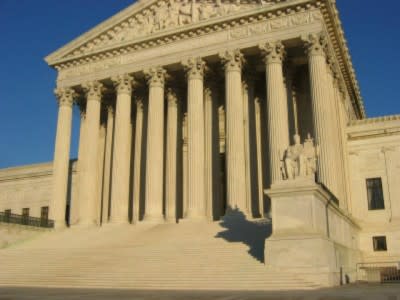Jerusalem passport, Facebook case opinions next up for Supreme Court?
The Supreme Court is back hearing arguments and issuing opinions this week, and again there will be considerable paid to two high-profile cases about U.S. foreign policy and Facebook free speech.
The nine Justices will issue at least one new opinion on Tuesday morning
The two yet-to-be-announced decisions from late last year involve who in the government can list the word “Israel” on a passport for a person born in Jerusalem, and what is the boundary between protected free speech and threats made on Facebook.
Zivotofsky v. Perry was argued on Nov. 3, 2014 and it remains one of two cases from November that haven’t been decided or rescheduled for arguments.
The case involves 12-year-old Menachem Binyamin Zivotofsky. Menachem’s parents are American citizens, and Menachem was born in Jerusalem.
Citing a 2002 law passed by Congress and signed by President George W. Bush, with reservations, the Zivotofskys asked the State Department for a passport for Menachem when he was two-months-old that listed “Jerusalem, Israel,” as his birthplace. The State Department refused to add the word “Israel” to Menachem’s passport, and the dispute has been in the legal system since them.
The direct constitutional issue is Zivotofsky is the question of which branch of government controls all, or at least most, of the foreign policy decisions in Washington.
Elonis vs. United States was argued on December 1, 2014 and itis a case originating near Bethlehem, Pennsylvania. It is one of three cases still pending from December, with nine other cases already decided.
Anthony Elonis is challenging a 44-month prison sentence for posts on Facebook that appeared to threaten his wife with violence, including statements made by Elonis online after he was served with a protection-from-abuse order.
Elonis believes that the lower court that convicted him should have been presented with direct evidence proving that Elonis made the statements with the intention of harming their recipients. Elonis claimed he made the statements as therapeutic works of art, in the form of rap lyrics, and he never intended to harm anyone.
The decision in the case could have a lot to say about the First Amendment in the age of Facebook.
Recent Constitution Daily Stories
Podcast: The fight for freedom in the 21st century
It was 225 years ago today: Benjamin Franklin died in Philadelphia
Five myths about the start of the Revolutionary War
Why Chief Justice John Roberts was eligible for jury consideration



